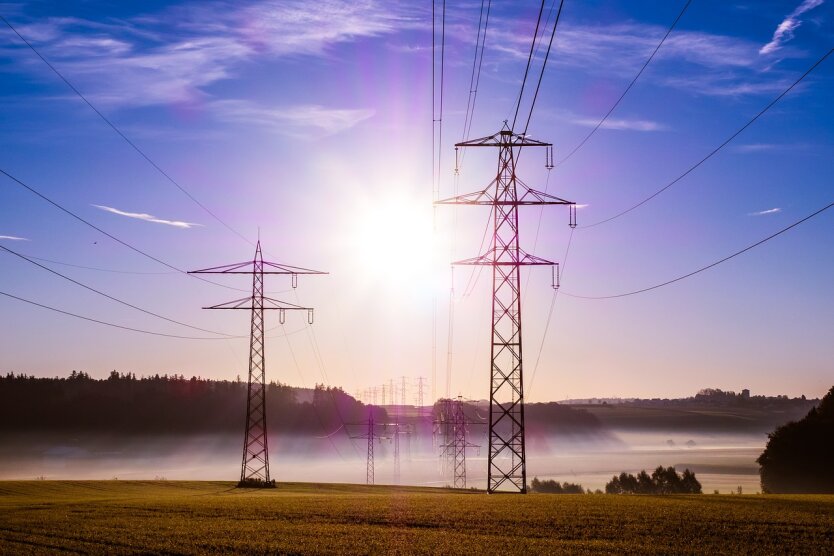Great Britain in the OSCE: The strikes of the Russian Federation on Ukraine's energy sector are a terror for the civilian population
- Mariia Khamitsevych
-
•
-
16:27, 19 July, 2024
Russian strikes on the critical infrastructure of Ukraine are a violation of humanitarian rights. The Organization for Security and Cooperation in Europe (OSCE) emphasizes that this is terror against the civilian population.
This was stated by the permanent representative of Great Britain Neil Holland at the regular meeting of the OSCE Permanent Council, reports Ukrinform.
«Russia violates international humanitarian law by terrorizing the civilian population with its continuous attacks on critical infrastructure facilities in Ukraine. Russia's illegal invasion of Ukraine and its constant attacks on energy infrastructure are also a violation of its obligations under the OSCE Helsinki Final Act,» said Neil Holland.
He added that Russia had disregarded the organization's founding principles, including respect for sovereignty, refraining from the threat or use of force, and respect for human rights.
«The international community, including the OSCE, must continue to hold Russia accountable for these violations,» the British ambassador emphasized.
Neil Holland recalled that in the spring of 2024, Russia significantly increased its attacks on Ukraine's energy infrastructure, continuing a strategy aimed at disrupting Ukraine's energy supply, resulting in total Ukrainian power losses of more than 9 GW and fan outages across the country.
«At the beginning of June, Russia carried out one of the largest attacks, launching 70 missiles and drones overnight, targeting energy facilities in at least five regions of Ukraine, which resulted in significant damage to the energy system. Ukrainian air defense managed to intercept many missiles and drones, but the attack still caused significant damage to critical infrastructure facilities and resulted in massive civilian suffering,» he noted.
At the same time, Ukraine faces «a huge task to restore energy supply before winter, which threatens that millions of people will not have enough heat due to a sharp drop in temperature.»
Against this background, Neil Holland pointed out that Great Britain has already pledged almost 150 million pounds to strengthen Ukraine's energy infrastructure and strengthen its cyber defenses.
«We will continue to work with international partners to help Ukraine repair, protect and restore its energy system. Our commitment to provide Ukraine with the support it needs for self-defense and restoration of sovereignty over its entire territory is concrete,» he added.
Shelling of the energy sector in the spring of 2024
Russia carried out the first massive shelling of energy infrastructure facilities this year on March 22. The Russian army attacked Kharkiv, Zaporizhzhia, Kryvyi Rih, Khmelnytskyi, Poltava Oblast, Vinnytsia Oblast, Lviv Oblast, Ivano-Frankivsk Oblast, Mykolaiv Oblast, Odesa, and other regions of Ukraine.
The biggest was the attack on the Dnipro hydroelectric power plant (HPP) in Zaporizhzhia. This is one of the largest and most powerful hydraulic structures in Ukraine. A rocket attack on the Dnipro HPP resulted in damage to two stations and a dam that are part of its structure.
Oleksandr Kharchenko, director of the Energy Research Center, says that by winter, Ukraine needs to restore at least 25-30% of the damaged heat generation: «We need to fully involve imports. Also, before winter, we need to restore as much as possible from coal generation, from hydro generation, and build facilities in gas generation as much as possible.»
At the same time, according to the Minister of Energy Herman Galushchenko, it is not appropriate to make any predictions about the difficulty of the next winter for the energy industry of Ukraine. In his opinion, now no one will be able to say with which generation Ukraine will end up in the winter: «Actually, everything looks comforting, because the system, despite the Russian strikes, is intact.»
The BBC predicts that Ukrainians can spend up to 20 hours a day without electricity or heating in winter.
In addition, on the night of June 22, the Russians launched missile attacks on critical infrastructure facilities in various regions of Ukraine. As a result of anti-aircraft combat, 25 air targets were shot down, but energy facilities in Zaporizhzhia and Lviv regions were still damaged. Also, as a result of an enemy attack on one of the facilities, two energy workers were injured.
